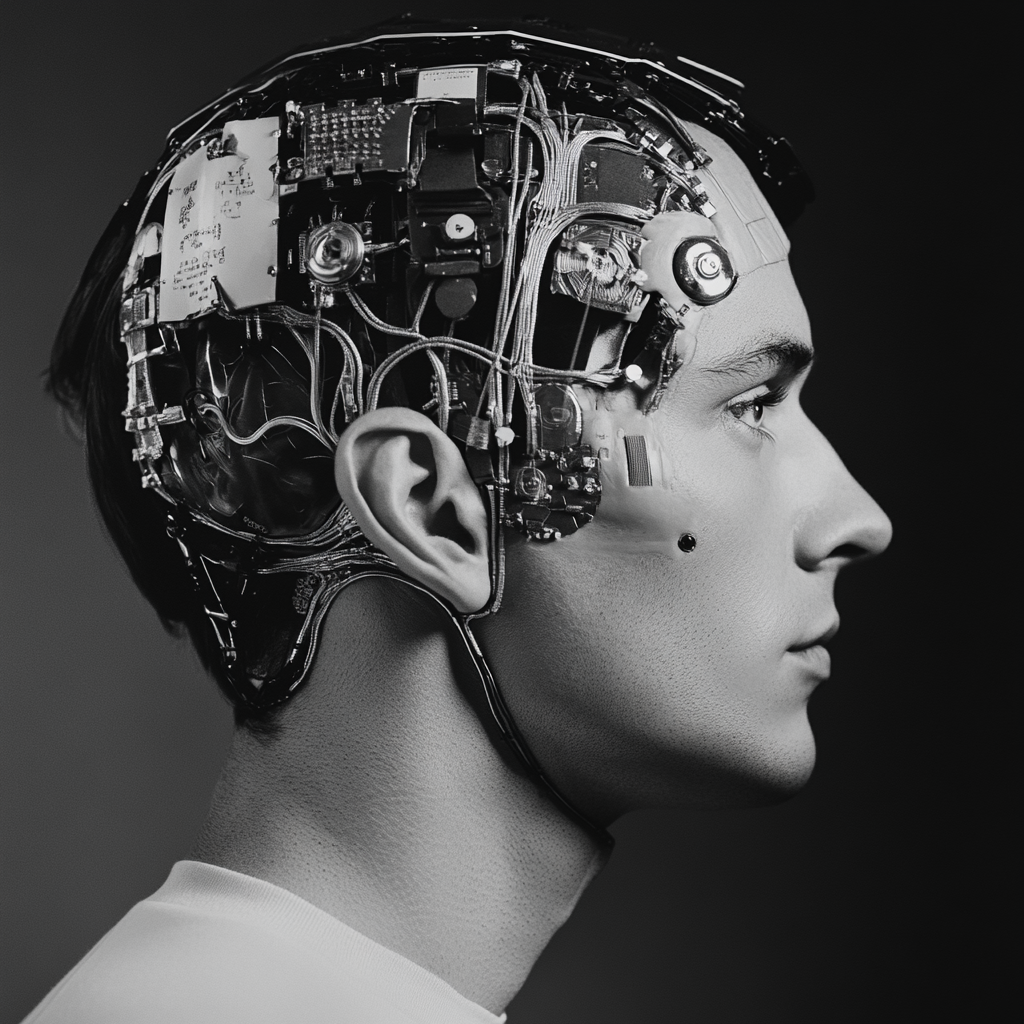
Meta’s Fact-Checker Cuts Overshadowed by AI and Neurotechnology Concerns
The Unseen Threats of AI and Neurotechnology: A Looming Shadow Over Mental Privacy
In a world constantly buzzing with the latest tech debacles—Meta’s downsizing on fact-checking, the endless tug-of-war over social media regulations—there lurks a true menace, quietly mushrooming beneath the surface. We're talking about the sensationally explosive marriage of Artificial Intelligence (AI) and neurotechnology. Sure, it sounds like a sci-fi plot twist where your brain gets a software update, but there's a much more sinister angle that’s creeping closer: the erosion of our mental privacy and human rights. Picture one of those dystopian movies where the state can read your mind. Spoiler alert: it's not really that far from reality.
The Rise of Neurotechnology
Neurotechnology isn't just an extravagant little widget from a futuristic dream—it's a real field connecting our brains to innovative electronic devices, blowing through traditional neurological barriers that we once thought insurmountable. Think about it: therapies to treat neurological disorders, methods to reinstate lost movement or even communication—the possibilities are exhilarating. But as we dive headfirst into this neural utopia, with AI patting it on the back like a buddy, ethicists and policymakers are waving red flags like it's a chaotic day at a bullfight.
UNESCO, that stalwart guardian of ethical standards, is already ringing alarm bells over this juicy amalgamation. They claim that bundling AI algorithms with neurotechnology isn't just a step forward; it's like giving neurotech a double shot of espresso. Mariagrazia Squicciarini, a hotshot economist at UNESCO, put it bluntly: it’s like “putting neurotech on steroids.” The idea is that what was once limited to basic functions is now supercharged, allowing for insane feats of data analysis that can dissect our very thoughts. Scary, right?
The Threat to Mental Privacy
Now let's get real: this convergence isn’t just a dazzling display of tech wizardry; it’s the proverbial double-edged sword swinging dangerously close to our heads. Gabriela Ramos, another brilliant mind from UNESCO, warns that we might be heading toward a reality where algorithms could peer into the very depths of our minds, decoding our intentions and emotions with the ease of a flicking switch. Suddenly, the café chit-chat about existential crises or what to put on toast isn’t just between you and a friend; it's now fodder for algorithms. It’s a mind-bending thought—imagine a future where your mental musings could be read like an open book, with brain scans and AI collaborating in real-time to spill secrets you thought were safe.
And while some scientists are patting themselves on the back for achieving the ground-breaking task of converting thoughts into text—sure, it takes hours in an MRI machine, and who has the time—but that’s a slippery slope we might not want to slide down. Once technology can place words to our thoughts, how long until it learns to rewrite them as well?
Commercialization and Ethical Concerns
But wait, there’s more. Neurotechnology is being fast-tracked to the marketplace like it’s the next hottest smartphone. You’ve seen those nifty headbands and ear pods that promise to turn you into a zen master? Welcome to the practical side of neurotech that tracks your brain's every nuance and energy spike. This isn't just for cool tinkering—it's paving the way to harvest your neural data and create a detailed, almost voyeuristic, profile of who you are. And not just in a way where your digital footprint is vaguely creepy; we're talking serious ethical dilemmas here.
Enter neuromarketing—a slick new term that means companies are now studying your neural information to untangle the intricacies of your preferences. They want to tap into your thoughts and emotions with the finesse of a sleazy magician pulling rabbits out of hats. And this is where the stakes grow higher. We're on the brink of allowing companies and governments alike to nudge our decisions, manipulate feelings, and, dare I say it—strip away our freedom to think independently. Anyone feel uneasy about that?
Global Regulatory Efforts
In light of these swirling complexities, organizations like UNESCO are stepping up. They see the writing on the wall and have initiated the development of a global ethical framework to safeguard our human rights against the encroachments of neurotechnology. It’s a noble pursuit, but let's be honest—this landscape is shifting faster than policy can keep up, and the gap is glaring. Plus, the burden doesn’t just rest on a select few; everyone must engage, voice concerns, and frame regulations that hold up against this tidal wave of technological progress.
Countries aren’t just sitting on their hands, though. Chile has taken the lead, planting its flag as the first country to implement legal measures against the risks posed by the neurotech surge. It’s like saying, “Hey, we see you, and we’re not playing nice,” but can one nation really stem the tide? The need for international collaboration has never been more pressing.
The Need for Neuroethics
Now, let’s talk about neuroethics. Think of it as the moral compass for this techno-fest. Emerging from the realms of medical and bioethics, neuroethics raises questions that dig deep—what is the actual impact of these mind-bending gizmos on our identity and society? It probes the very foundations of self-understanding in an age where your brain isn’t just yours anymore; it’s up for grabs.
Consider these critical thoughts that swirl in the neuroethics soup:
- Privacy: With this tech slithering closer, can we truly claim sovereignty over our minds? It’s a discombobulating question.
- Autonomy: When neurotech can mess with our neural activity in real-time, what happens to our bodily and mental autonomy? Are we merely puppets in a game designed by unseen hands?
- Identity: How do shifts in our mental processes redefine who we are? Could we be looking at a future where our identities are fluid, bending at the whims of technology?
- Bias and Discrimination: And let’s not forget—tech developed for one demographic may crash and burn in another context, leading to discrimination as stark as day and night. It's a looming issue that deserves our undivided attention.
Conclusion and Call to Action
As we meander through this convoluted tapestry of AI and neurotechnology, standing still is simply not an option. Ethical considerations and regulatory frameworks aren’t just nice-to-haves; they are critical to retaining our rights and freedoms in a world increasingly dominated by tech.
With algorithms creeping ever closer to decrypting our mental processes, we can’t just twiddle our thumbs and hope for the best. We must remain vigilant as we push forward, demanding accountability and ethical use of these potent technologies. The battle is underway, but every bit of awareness and engagement counts.
Want to stay up to date with the latest news on neural networks and automation? Subscribe to our Telegram channel: @channel_neirotoken
Let this be a wake-up call; the future of our mental privacy and human rights lies in our hands. Let’s ensure it’s one we can rejoice in rather than fear.

